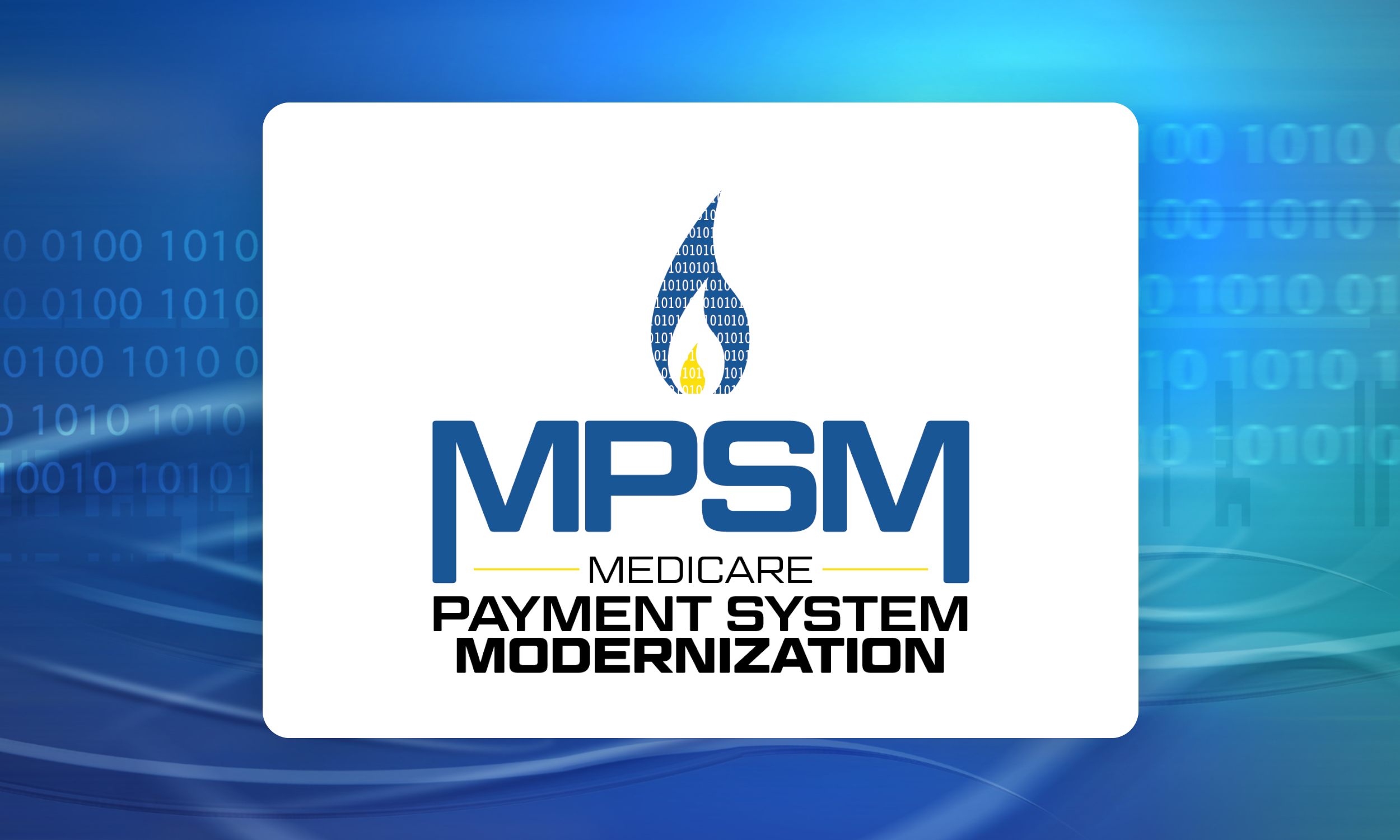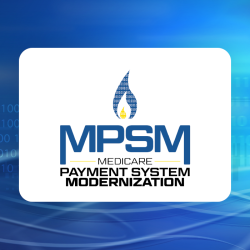MPSM Newsletter - March 2023

New Dental Research is Here!
Digital Services at CMS (DSAC) recently conducted a dental operations research study to support the finalized dental and oral health policies in the Calendar Year (CY) 2023 Physician Fee Schedule (PFS).
The study was conducted to provide a better understanding of the dental provider community and had two key goals:
- Describe dental providers’ claim capabilities
- Describe the factors that dental providers consider when contracting with a new payer
Researchers conducted 60-minute interviews with 43 professionals who were familiar with the preparation, submission, and management of dental claims. Participants came from 18 organizations and represented a range of stakeholder groups such as private practices, dental support organizations, and Federally Qualified Health Centers (FQHCs).
DSAC researchers identified four key themes and subsequently developed insights and recommendations to inform the implementation of the CY 2023 PFS final rule policies, which include efforts to adopt the dental claim format. This also included discussions to informa any payment guidance necessary to address operational aspects of implementing the CY 2023 PFS final rule policies.
The themes were:
- Provider participation: Understand what influences a dental providers's decision to contract with a new payer to better anticipate the impacts of our decisions as we operationalize the policy.
- Organization and operations structure: Illustrate the dental industry landscape by grouping providers according to their internal operational structure to better understand how a practice or organization would divide up the roles and responsibilities of claims processing based on their available resources and size.
- Typical claim workflows and processes: Map the claims workflows and processes for a small or group practice to identify key events, distinguish differences for paper claims, and identify who is responsible for these roles at an organization.
- Role of technology in dental provider operations: Learn what software is commonly used by dental providers as well as which electronic transactions are used for claim management.
DSAC’s research on this issue supports CMS and MPSM’s efforts to implement the CY 2023 PFS dental and oral health policies for Medicare beneficiaries. Check out the Confluence page to learn more about these findings or, contact Amelia Liarkos at amelia.liarakos@cms.hhs.gov or Michelle Polyak at michelle.polyak@cms.hhs.gov with any questions.
Team Spotlight: Operations & Site Reliability Engineering (OSRE)
The OSRE team was established to maintain and support a shared platform that includes cloud infrastructure, common services and tools, modular components, security best practices, processes, and modern software development standards, that allow Application Development Organizations (ADOs) working to modernize the Medicare Fee-for-Service (FFS) legacy systems, to do so with maximum velocity, quality, and reliability within a collaborative environment.
The collaborative environment lets ADOs focus their time and attention on architecting and building their applications to deliver maximum value for their users in the Medicare Payment System Environment (MPSE).
Further, this eliminates unnecessary duplication of effort across ADOs and provides consistency across teams, enabling an improved ability to automate and report on delivery and service level metrics, debug and resolve cross-system incidents quickly and accurately.
Recent Accomplishments
Here are just a few of OSRE’s key accomplishments from FY2022:
- Enabled and supported ADO teams in their path to Prod and continued to iterate on incident management and access control practices and patterns, including a full migration to Splunk On-call, eliminating costs related to license fees.
- Served as the on-call responders to support issues that product teams may encounter with platform, infrastructure, and tooling support, achieving a 98.3% resolution rate for ADO requests.
- Developed cost reduction framework in the use of AWS/Cloud (Amazon Web Services) RDS (Relational Database Service) and EC2 (Elastic Compute Cloud) instances to support ADO cost reduction efforts.
- Developed and deployed a unified, automated private Certificate Authority (CA) to enable end-to-end encryption everywhere, thereby improving our security posture.
Upcoming Work
In the current quarter (FY23 Q2), the OSRE team has been focusing on:
- Onboarding Dental MVP teams onto the MPSE common infrastructure and supporting their environment requirements.
- Completing the migration from ARS 3.1 to 5.0 to facilitate application security posture and compliance through the FISMA Continuous Tracking System (CFACTS) application.
- Implementing a cost reduction framework, which includes cost reduction policies and scaling down service usage.
- Sharing the considerations/findings from the OSRE stakeholder interviews with CMS to establish actions aligning and evolving the OSRE ecosystem with CMS leadership goals.
Leadership Spotlight: We Are MPSM" featuring Tammy Howard
"We Are MPSM" provides an opportunity to take a glimpse into leaders' and product managers' vision of MPSM, hear their views on the importance of modernization, and learn some fun facts along the way. The series continues with Tammy Howard, Director of the Division of Data Systems in the Provider Billing Group (PBG).
Who is Tammy Howard?
Tammy has been at CMS since 1999. As Director of DDS, Tammy oversees the Pricing and Coding Services (PCS) team which has the distinction of being the first CMS team to dive into MPSM with OIT, starting with the Pricer software.
What is the Significance of Modernization for CMS?
“CMS and our contractors have used much of the same Information Technology tools, languages, platforms, and approaches for Medicare claims processing for over 40 years. As the Medicare program evolves, it becomes more difficult and resource intensive to implement changes in the legacy systems, and there are limits to what can be done. I look forward to MPSM improving the payment system’s flexibility, efficiency, maintainability, and extensibility.”
Career Snapshot
“I started at CMS in 1999, right out of high school. My first “real” job was at CMS, and I stayed! I lead a team of programmers who are responsible for developing and distributing Pricing and Coding Services (PCS) products and providing data analytic services to CMS payment policy teams, contractors, state programs, and the public.”
Your Career in Five Words
“Evolving, Enjoyable, Progressive, Fulfilling, and Supported!”
Something You Are Looking Forward To
“In 2023, I hope to travel somewhere I’ve never been. TBD...”
Past CMS Projects
“My team and I have supported numerous Medicare Fee for Service (Parts A & B) and Center for Medicare & Medicaid Innovation initiatives over the years. Some recent examples include Medicare’s COVID-19 Public Health Emergency response, Rural Emergency Hospital provisions to promote health care equity, Inflation Reduction Act Part B drug coinsurance affordability, and the End-Stage Renal Disease Treatment Choices model.”
Fun Fact
“Despite my extreme fear of heights, I am fascinated by mountains.”
Hobbies
“I enjoy maintaining my aquariums, home décor and organization, growing houseplants, painting on canvas, and spending time with family and friends.”


